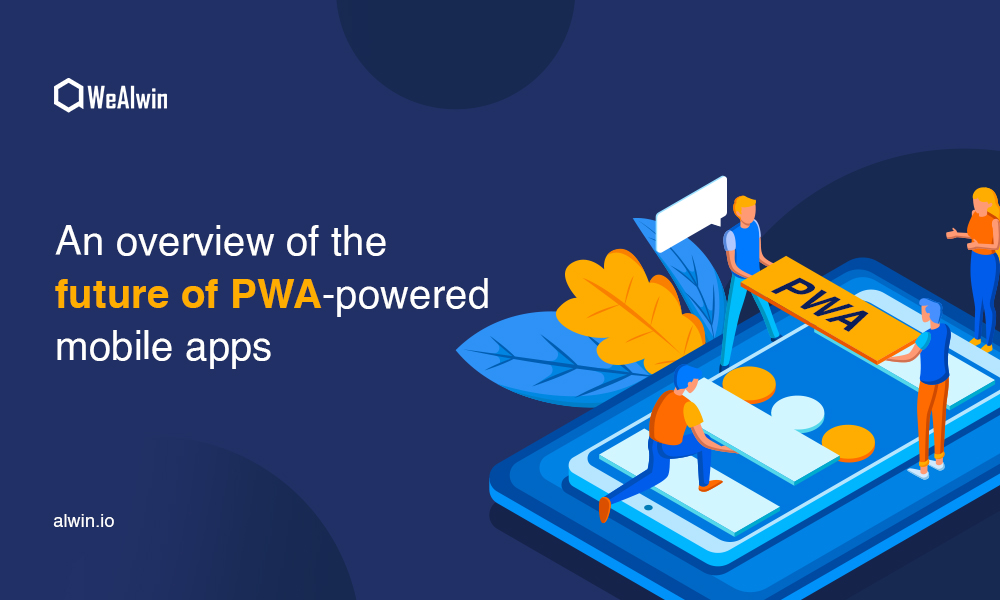Mobile applications have become an integral part of our daily lives, serving as tools for communication, productivity, entertainment, and more. With the rise of Progressive Web Apps (PWAs), a new era of mobile app development is on the horizon. In this article, we will explore the future of PWA-powered mobile apps, their advantages, challenges, and the impact they will have on the app development industry.
The Impact of PWA-Powered Mobile Apps
The increasing popularity of PWAs is set to have a significant impact on the app development industry and the way users interact with mobile applications. Some potential impacts include:
Disruption of App Stores
As PWAs can be accessed directly through web links, they challenge the dominance of traditional app stores like Apple App Store and Google Play Store.
This could reshape the app distribution landscape and provide more opportunities for developers to reach a broader audience.
Improved User Engagement
With offline functionality, fast loading times, and enhanced user experience, PWAs have the potential to increase user engagement and retention.
Users are more likely to return to PWAs that offer a seamless and convenient experience.
Simplified App Development
The use of PWAs streamlines the app development process by reducing the need for separate codebases for different platforms.
This simplification can lead to faster development cycles and quicker updates, benefiting both developers and users.
Current Trends in PWA Development
Progressive Web Applications (PWAs) have gained significant momentum in recent years, revolutionizing the way users interact with web applications.
Offering a seamless and native-like experience, PWAs have become a preferred choice for businesses looking to bridge the gap between web and mobile applications. In this blog section, we will explore the current trends in PWA development, ensuring you stay updated with the latest advancements in this rapidly evolving field.
1. Increased Adoption by Major Companies:
Major corporations such as Twitter, Pinterest, Starbucks, and Uber have successfully embraced PWAs, which speaks volumes about the platform's growing popularity. Many businesses now consider PWAs as a cost-effective alternative to native apps, as PWAs eliminate the need for separate development and maintenance for multiple platforms.
2. Accelerated Mobile Pages (AMP) Integration:
The integration of AMP and PWA techniques provides an excellent opportunity to boost mobile website performance. By combining the speed optimizations of AMP and PWA features like push notifications and offline capabilities, businesses can enhance user engagement and ultimately increase conversions.
3. Improved SEO:
PWAs contribute significantly to search engine optimization (SEO) efforts, as they are easily discoverable by search engines. Unlike native apps, PWAs can be indexed by search engines, ensuring that your content reaches a wider audience. Moreover, PWAs enjoy faster loading times, which is a critical factor in search ranking algorithms.
4. Increased App-like Functionality:
PWAs continue to evolve, offering increased app-like functionality. With features such as background syncing, geolocation access, and camera usage, PWAs are blurring the lines between web and native applications. Moreover, the latest trends focus on seamless integration with device hardware and software capabilities, providing users with an immersive experience.
5. Focus on accessibility:
As inclusivity gains more attention, developers are increasingly considering accessibility when building PWAs. This includes ensuring compatibility with assistive technologies, offering adjustable font sizes, and incorporating keyboard navigation. Such commitment to accessibility helps businesses reach a wider audience and adhere to legal requirements.
Future predictions for PWA-powered mobile apps
As the mobile app industry continues to evolve, Progressive Web Apps (PWAs) are poised to play a significant role in shaping the future of mobile experiences. Here are some predictions for the future of PWA-powered mobile apps
1. Continued growth in adoption:
With the benefits of PWAs becoming more widely recognized, we can expect to see a significant increase in the adoption of PWA-powered mobile apps across various industries. Businesses will increasingly turn to PWAs as a cost-effective and efficient way to reach their customers on mobile devices.
2. More advanced features and capabilities:
As technology continues to advance, PWAs will also evolve to offer more advanced features and capabilities. This could include enhanced offline functionality, improved performance, and seamless integration with other technologies such as AI and AR. PWAs will become more sophisticated and capable of delivering a richer and more interactive user experience.
3. Integration with emerging technologies:
PWAs are well-positioned to integrate with emerging technologies such as artificial intelligence (AI) and augmented reality (AR). We can expect to see PWAs leveraging AI to provide personalized user experiences and predictive analytics. AR capabilities could also be integrated into PWAs to offer immersive and interactive experiences for users.
4. Increased competition with native mobile apps:
As PWAs continue to improve in terms of performance and functionality, they will increasingly compete with native mobile apps. Businesses will need to consider the advantages of PWAs, such as faster loading times and lower development costs when deciding on their mobile app strategy. The competition between PWAs and native apps will drive innovation and lead to better mobile experiences for users.
Why do PWAs have such a bright future?
1. Cross-platform compatibility: One of the most significant advantages of PWAs is their compatibility across multiple platforms. Unlike traditional mobile apps, PWAs are not restricted to a particular operating system and can run seamlessly on any device with a web browser. This cross-platform compatibility eliminates the need for developers to build separate apps for iOS and Android, significantly reducing development time and costs.
2. Instant accessibility: PWAs do not require installation from app stores, enabling users to access the app instantly. This eliminates the need for users to download, install, and regularly update the app, making the user experience much more convenient and frictionless. With just a simple URL, users can access the PWA, which can be added to the home screen for easy access.
3. Improved performance: PWAs are built to be highly performant, providing users with a smooth and fast experience. They utilize advanced caching mechanisms, allowing them to load even in unreliable network conditions or offline mode. PWAs also take advantage of browser technologies like service workers to prefetch and cache resources, making subsequent visits to the app lightning-fast.
4. Push notifications: PWAs support push notifications, enabling app-like notifications to be sent to users even when they are not actively using the app. This feature allows businesses to engage and retain users by sending timely updates, offers, or personalized messages. Push notifications act as a powerful marketing tool, driving user engagement and providing an app-like experience on the web.
5. Lower development and maintenance costs: Developing a PWA requires a single codebase, which significantly reduces the development and maintenance costs compared to native apps. With PWAs, businesses do not need to hire separate development teams for different platforms, resulting in substantial cost savings.
The attributes mentioned above contribute to PWAs having a great future. Their cross-platform compatibility, instant accessibility, improved performance, discoverability, push notification support, and cost-effective development make them a compelling choice for businesses and developers alike. As technology advances, PWAs continue to evolve, promising even more exciting features and opportunities in the future.
The future of PWA-powered mobile apps looks promising, with several advantages that make them a preferred choice for developers and users. While they face challenges that need to be addressed, the impact of PWAs on the app development industry is undeniable. As technology continues to evolve, PWAs are likely to play a more significant role in shaping the future of mobile applications, offering a more accessible, efficient, and engaging user experience.
Ready to elevate your mobile app experience with Progressive Web Apps (PWAs)?
Contact us today, WeAlwin Technologies for your progressive web app development to explore the endless possibilities of PWA which take your business to new heights! Let's revolutionize your digital presence together. Reach out to us now!



